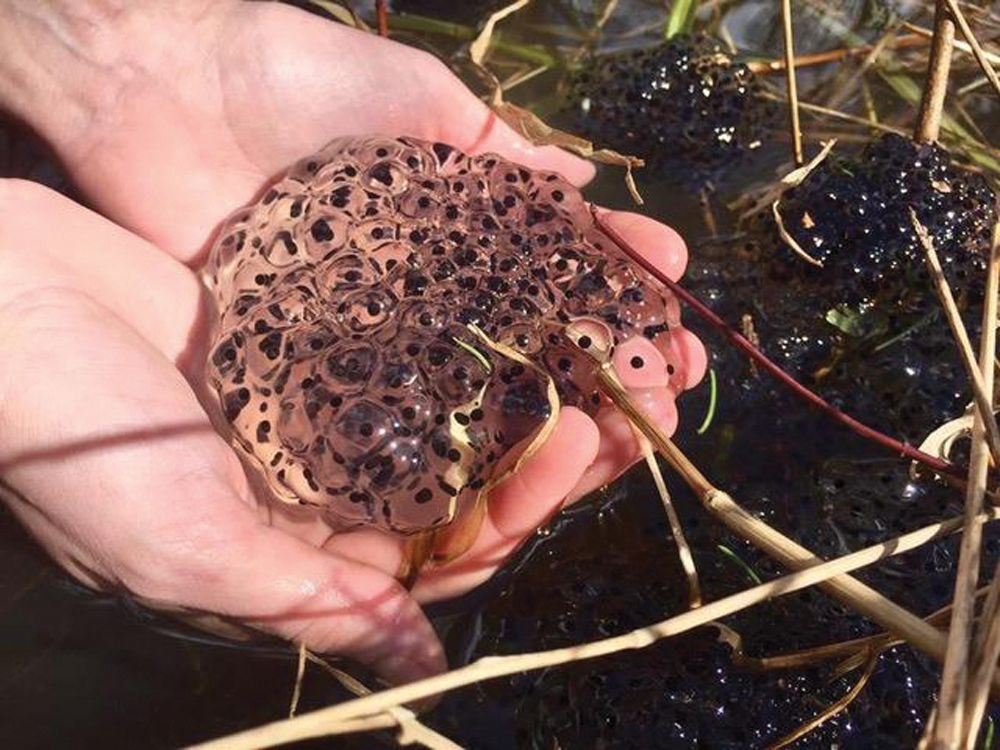Although few people have heard about it, the Oak Lake Sandhills and Wetlands Natural Area is one of the most fragile and valuable natural landscapes in the entire province. Now a local family has permanently protected a portion of this diverse habitat.
“I like to protect nature,” said Tim Mowez, a Virden resident and landowner. “Pretty soon there will be nothing left if we don’t protect it.”
The Oak Lake Sandhills and Wetlands Natural Area, located near Oak Lake, Man., provides habitat for a wide assortment of plants, insects, birds and animals. Now a significant tract of this habitat is permanently protected with a conservation easement. While this protects the habitat from clearing and breaking, grazing will continue as it has in the past.
Read Also

Giant Canada geese have gone wild in Manitoba
Giant Canada geese are seemingly everywhere and can be fine table fare for local hunters, but 70 years ago, they were borderline extinct.
Tim and Kathy Mowez own an entire quarter section (160 acres) of this natural habitat south of the Trans-Canada Highway, between Virden and Oak Lake. This ecological landform is quite fragile and so the owners recently decided to protect their property. This ensures that nature can continue undisturbed with no threat of clearing or development in the future.
“The animals have to have a place to live too,” Mowez said. “If you don’t have trees and bush you won’t have birds and other wildlife.”
Tim bought the property from his father in 1984. He comes by his conservation ethic honestly, as his father was also conservation minded, according to Tim. “My dad never believed in pushing bush down,” he said. “He preserved it.”
While grazing takes place here, the property has never been cleared or broken. The entire property is heavily tree covered, but the soil beneath is sandy and without the protection of ground cover it would quickly erode. Thus, maintaining permanent cover on the property is a top priority under the terms of the new conservation easement.
Tim enjoys the outdoors and he gets immense pleasure from the time spent at the property hunting, taking walks, hiking, cutting firewood and enjoying other outdoor activities.
Over the years, he has observed clearing and development taking place nearby. He wanted to ensure that his unique, rare and productive wildlife habitat is permanently protected and this influenced his decision to act.
The project is a purchased conservation agreement with the Nature Conservancy of Canada, on the property located in the Oak Lake Sandhills and Wetlands southeast of Rutledge Man., according to Josh Dillabough, securement representative with the Nature Conservancy of Canada. The project protects sandhill prairie, sandhill blowouts, sandhill forests and their associated species.
The Oak Lake Sandhills and Wetlands Natural Area is a biologically diverse area, said Dillabough. “It covers 777,787 acres (314,760 ha) and supports a high diversity of habitat types which, in turn, make the area a hot spot for biodiversity. Dozens of sandhill formations rise up to 10 metres above the plain, supporting a mixture of aspen woodland and sand-hill prairie.”
These sandhills are the only place in Manitoba where one can see the threatened Western Spiderwort, according to Dillabough. As well, the endangered Prairie Skink, Manitoba’s only lizard, lives on the sandhill slopes alongside a suite of rare plants such as Smooth Goosefoot and Silky Prairie Clover.
“The need for private land conservation and stewardship is urgent,” he said. “More than 85 per cent of the Western Spiderwort population is under private ownership. Large portions of this natural area were highlighted in the Prairies and Parklands Conservation Blueprint. Portions of the woodlands, grasslands and wetlands were ranked as being amongst the ‘Top 15’ in the Canadian portion of the blueprint.”
If you would like more information about conservation agreements or any of the Nature Conservancy of Canada programs, please call the Manitoba Region’s toll-free number: 1-866-683-6934, its Brandon office: 1-204-725-5987 or visit the NCC website: www.natureconservancy.ca/mb.

















